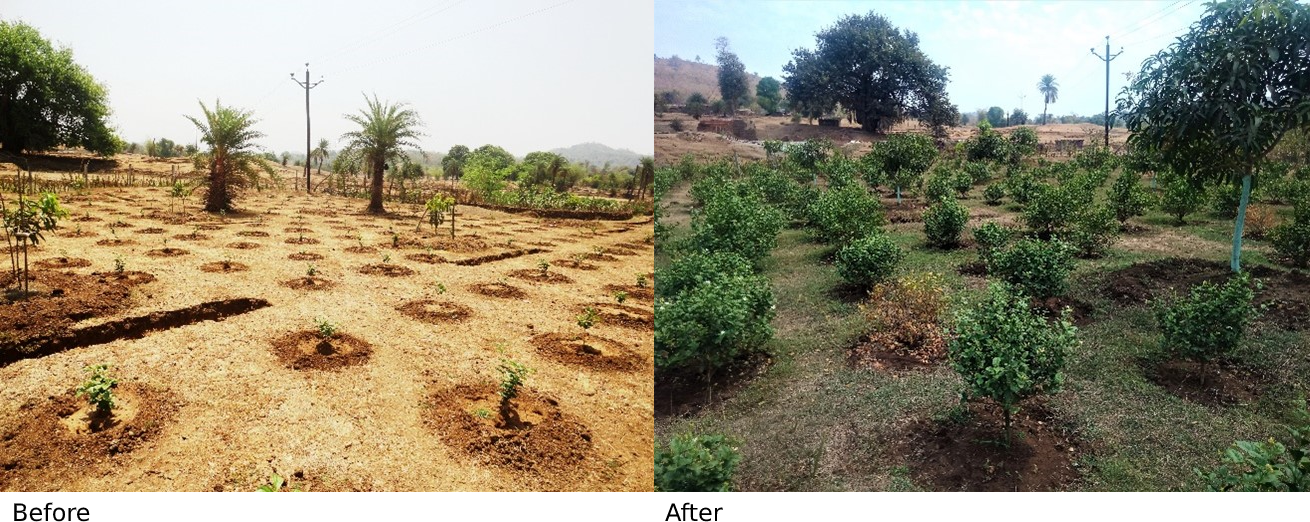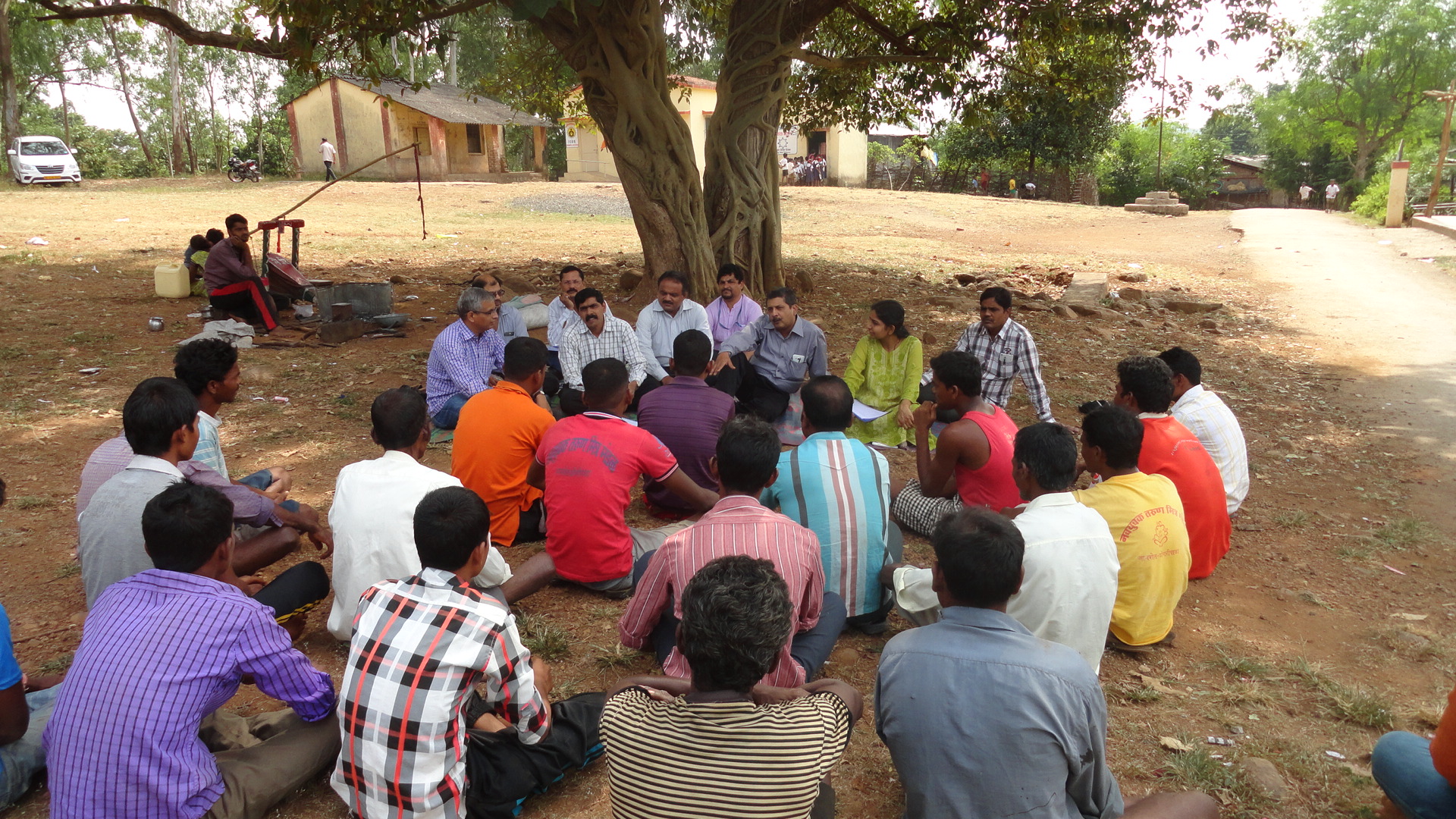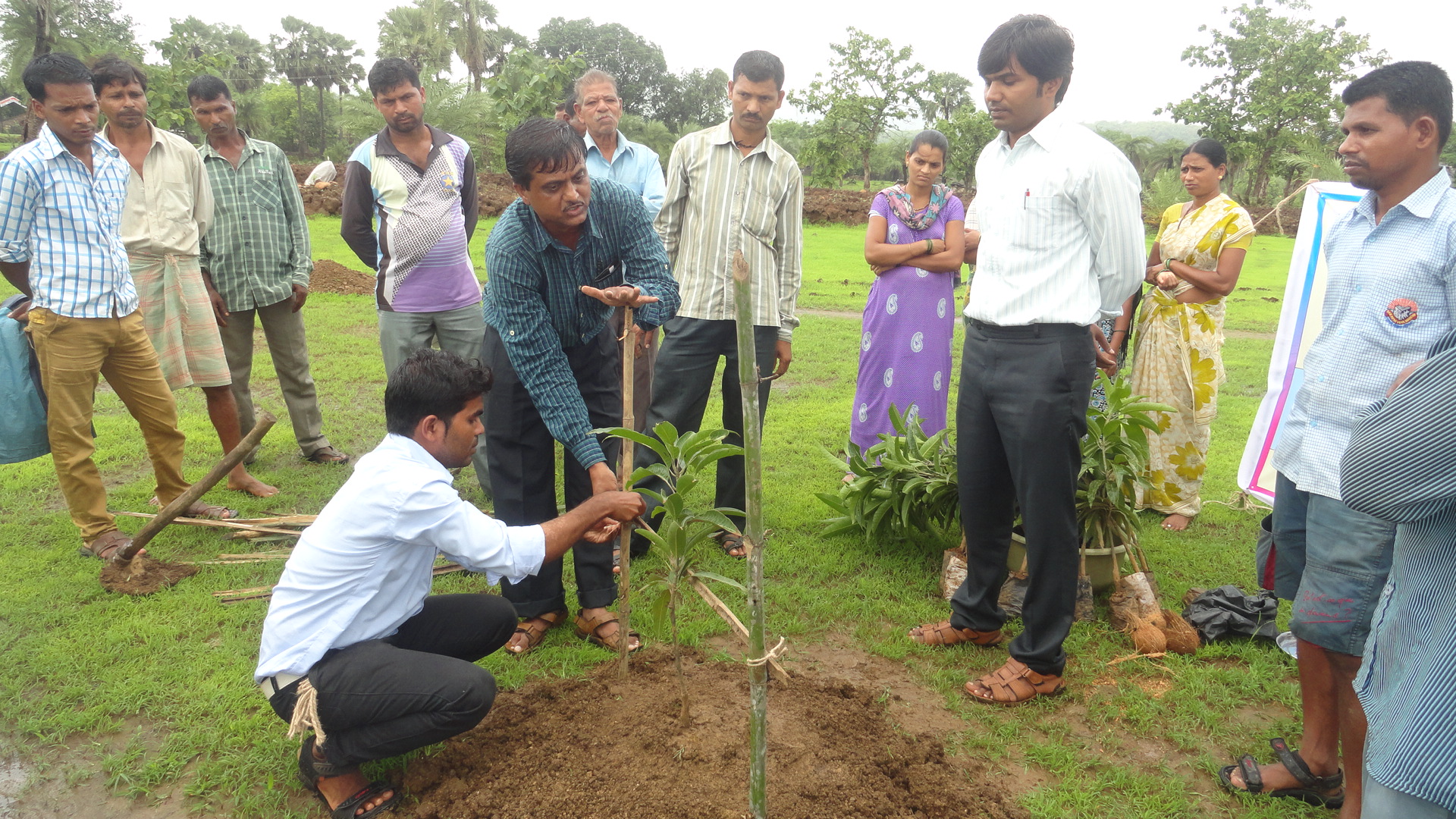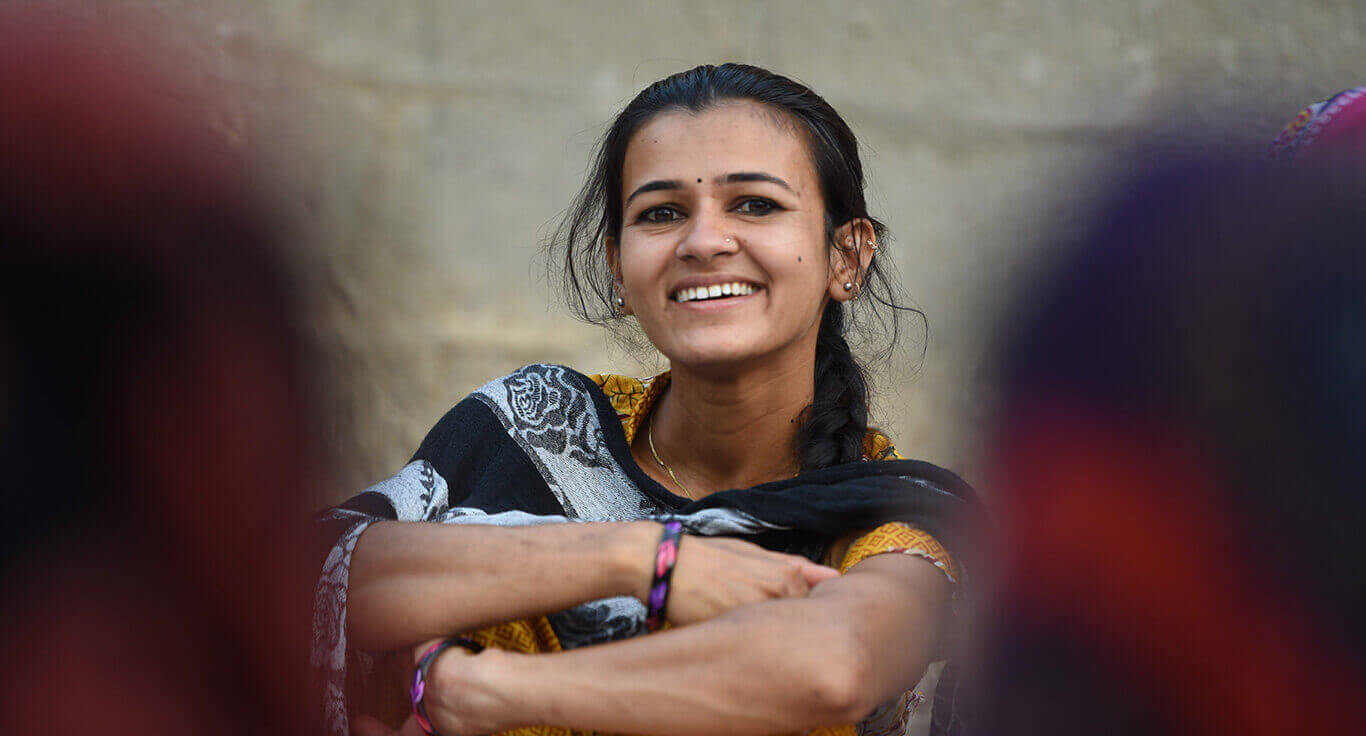
I have worked in the space of community development for my entire professional life, a large part of it has involved working with tribal communities in Maharashtra. I joined Adani Dahanu Thermal Power Station (ADTPS) in the early 1990’s and since then I’ve been actively involved in assignments that benefit the living standards of tribal people. In the year 2015, the efforts took shape of Wadi Project – an integrated tribal development project in Dahanu block of Palghar district and I was fortunate to become a part of the task force from day one.
The main objective of this comprehensive project is to create opportunities for gainful self-employment for the tribal families. This was done with financial support from the Adani Foundation and NABARD (Pune), implemented by BAIF Institute for Sustainable livelihood development. The major challenges that tribal families face which I’ve noted during my time in the region are low land holding, soil degradation, high agriculture input costs, problems of pests and diseases, limited credit availability and unfavourable market situations. All these factors put together made the farming here less profitable. As a result, migration was a major trend as 78.7 % families migrated for either brick making or sand dredging work.

After a series of meetings with tribal families in different villages of the Dahanu block, we managed to convince 220 families to join hands with us. With time came small successes, and with came trust. More people came under the fold of the project – 650 families in second year and 350 families in third year. These were the families who had around 1 acre of farmland. But in our surveys, we found that there are landless families as well who could thrive with some support. We identified 100 such landless families and started working with them.
A detailed survey of the selected villages and families was conducted by BAIF for identification of micro level activities for integrated development including water, health, infrastructure, education, women empowerment, and community involvement along with agriculture-based livelihood promotion.
The date from the from the survey reflected that agriculture was the major occupation and there was no secondary occupation for earning extra income. Only paddy was grown in the fields and that too for domestic use only and once the paddy season was over famers migrated to other places in search of labour work. The tribal farmers did not possess the 7/12 extract of their landholding due to which they were not able to receive benefits under government schemes. Health was a topic of serious concern as low agriculture production led to uncertainty in food security, resulting in poor health. Malnutrition, especially amongst women and children, were also common which contributed to maternal mortality and babies with low birth weight.
I remember that in all our initial meetings and discussions the tribals showed a lot of willingness to adopt new methods of agriculture and were excited about the prospects of multi-cropping. Hence, when we designed the project, the focus was on improving the quality of life with consideration to the environment, available natural resources, traditional skills, and tribal culture. A diversified horti-forestry and agriculture program was worked out and hence titled as Wadi program – including horticulture, forestry, vegetable cultivation and floriculture. It is designed to the needs of the tribal families to enable them to earn a sustained income.

The wastelands were developed into productive assets by plantation of fruit and forest. The species for plantation was chosen according to the suitability of the project area, and as per the preferences of the participating family. Various activities such as pit digging, manure filling, fruit plantation, forestry saplings, fencing, soil water conservation, water resource development, aftercare of plantation were conducted during the process of cultivation.
To help landless families in the region earn a sustainable and respectful livelihood, micro enterprise activities based on skill, service, agriculture, and trading were started. The micro enterprise activity of the family was finalized through discussions with the families considering their scope and current skill.

The project is bearing fruits now – the families in the region are no longer dependent on just one, sparse source of income. They are now adopting horticulture, floriculture, and vegetable cultivation to augment their earnings. Through vegetable cultivation families are now earning INR 18,000-34,000 per year. 702 families cultivated Jasmine and earned an annual income in the range of INR 19000-45000. With enhanced and regular income, migration in the Dahanu block has reduced by up to 90%. This, I feel, is the true achievement.



